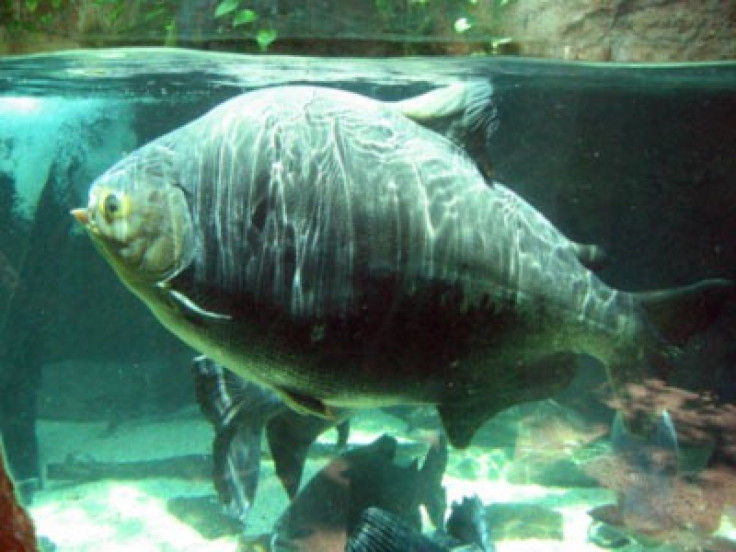'B--l Cutter' Fish Found In Illinois Lake

The summer just got a whole lot hotter for anyone looking to cool off in Illinois' Lake Lou Yaeger, where anglers accidentally discovered a fish that's commonly known as the b--l cutter.
When lake superintendent Jim Caldwell responded to a call from fishermen who thought they had nabbed a piranha, he had no reason to think otherwise. That was until he brought the fish to the attention of the Illinois Department of Natural Resources and its staffers told him the fish was in fact a pacu, according to KSDK.com. Like the piranha, the pacu is native to the Amazon River, but unlike the piranha, a fan of all kinds of meat, the pacu tends to focus on male testicles.
A pacu can be as long as three feet and weigh as much as 55 pounds, according to Animal Planet. The pacu's diet is mostly made up of insects, snails, fruits, and -- nuts. It's a mystery how they made it to Lake Lou Yaeger, but officials told the Journal News of Hillsboro, Ill., they suspect the fish were dumped illegally after being raised in a home aquarium.
Although the pacu is closely related to the piranha, the two differ in the shape of their teeth. A piranha has jagged teeth, while a pacu has square teeth, similar to those of a human. There are no known reports about how castration differs experientially between the varieties of fish.
Last year, the pacu was responsible for two deaths in Papua New Guinea, where the fish has been introduced to combat overfishing, according to the Mail of London. After having their testicles ripped off by the beast's powerful jaws, two men died due to massive blood loss. The muscular fish's teeth are designed for cracking nuts.
By most accounts, the carp-size fish is generally shy, although its affinity for snacking on things that look like snails has scared off many male swimmers in Lake Lou Yaeger. The good news for the sweaty masses is that the tropical fish will not be able to survive the cold Illinois winter. Until then, castrations are free.
© Copyright IBTimes 2024. All rights reserved.











